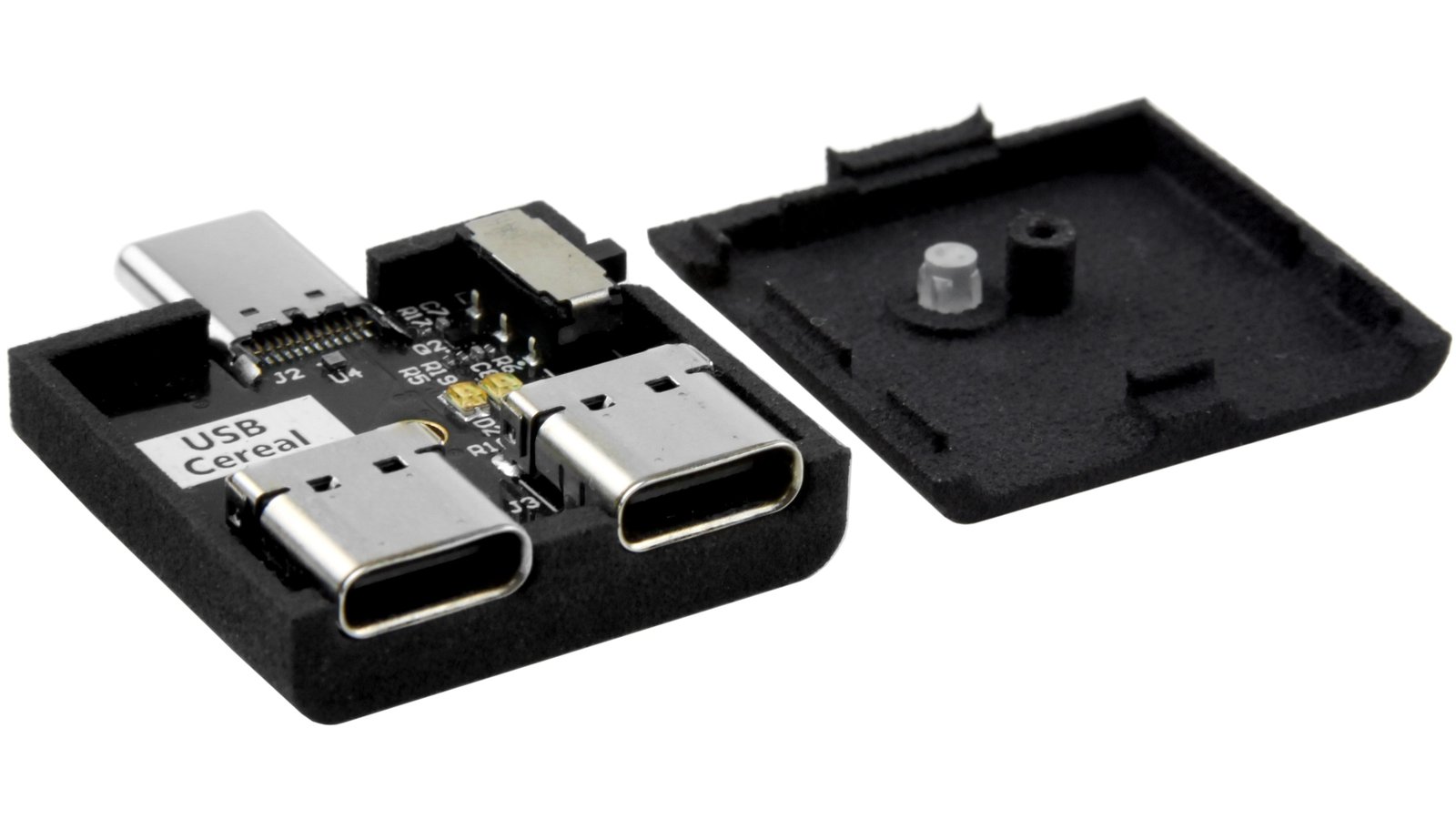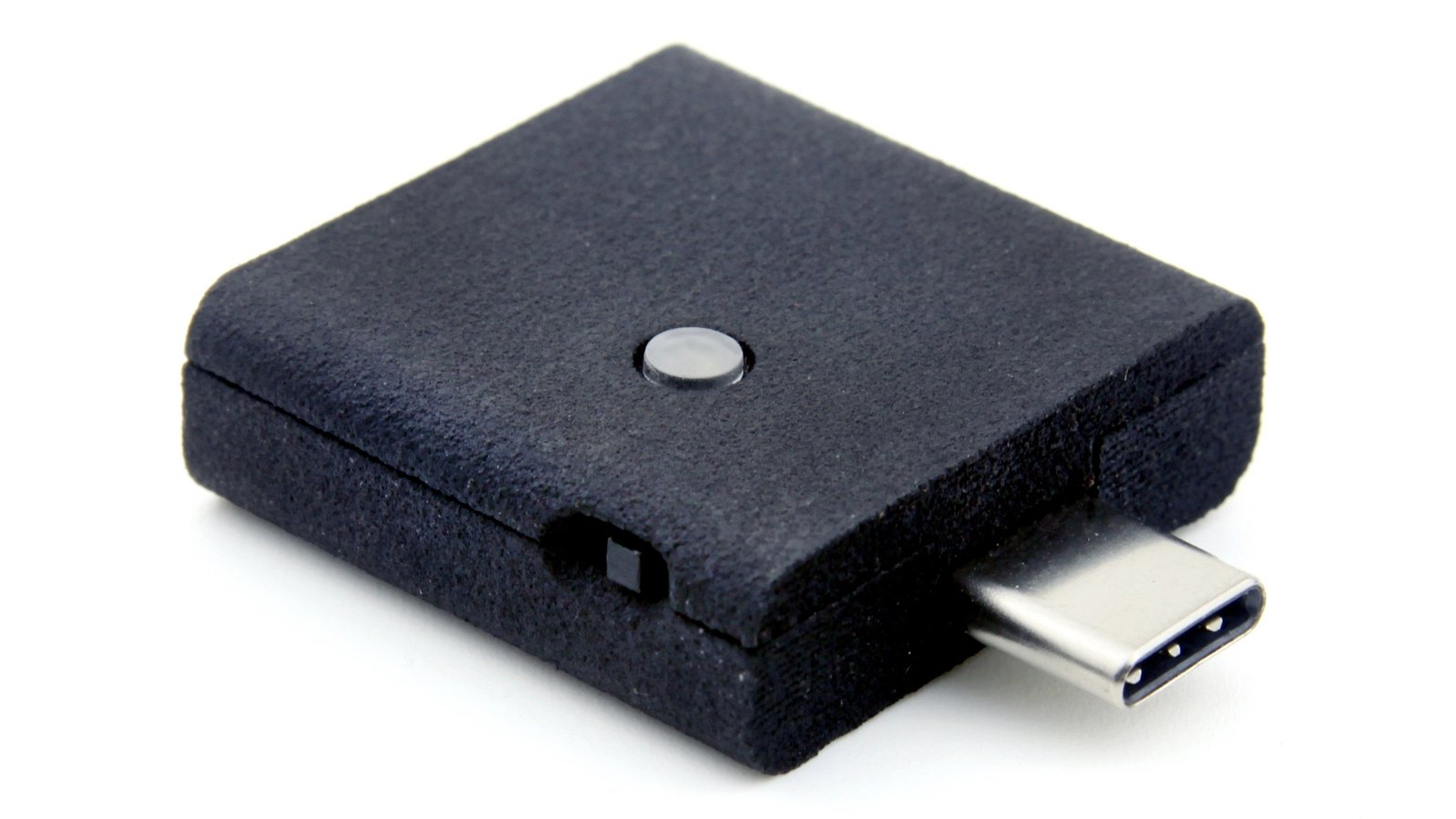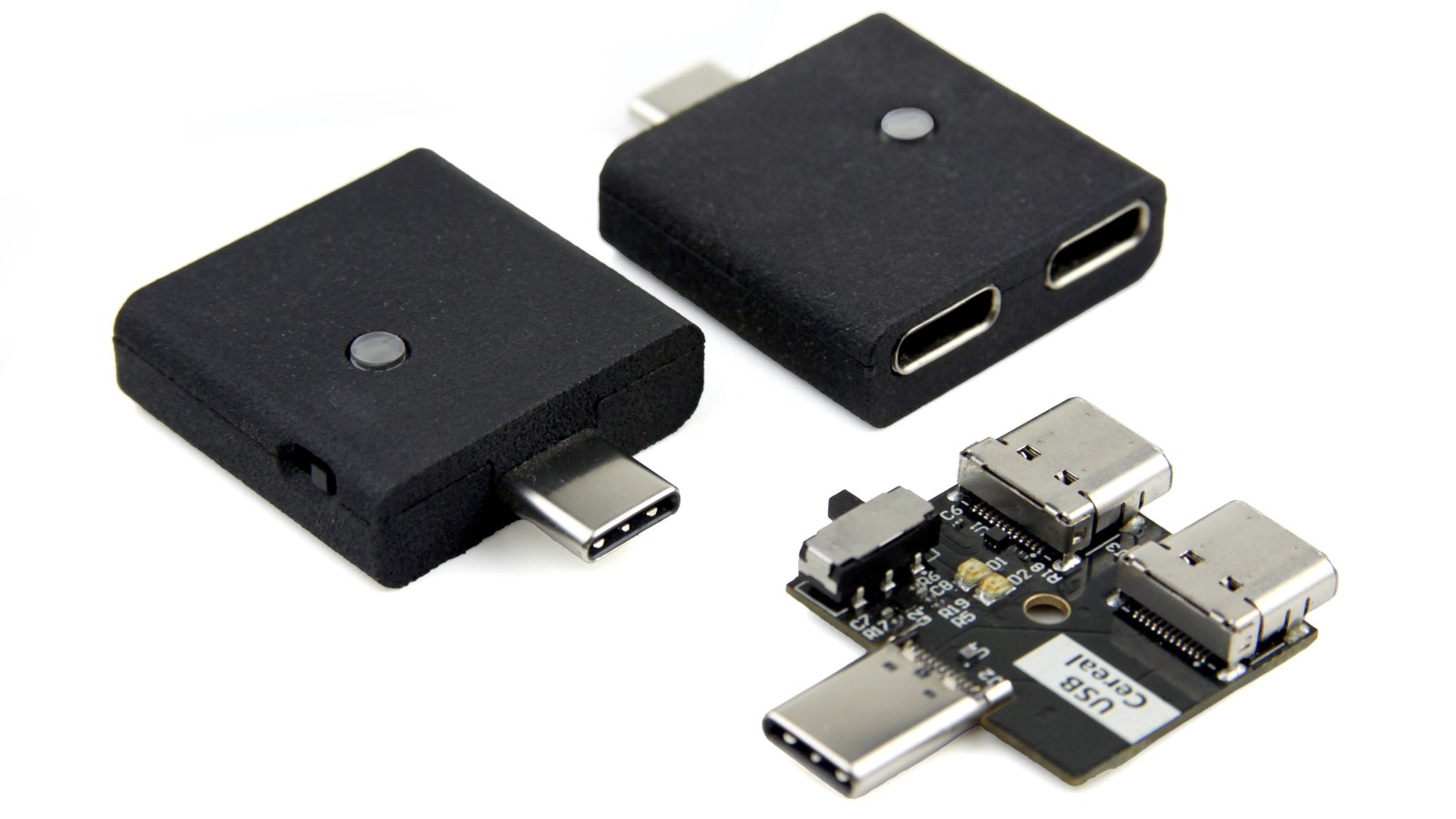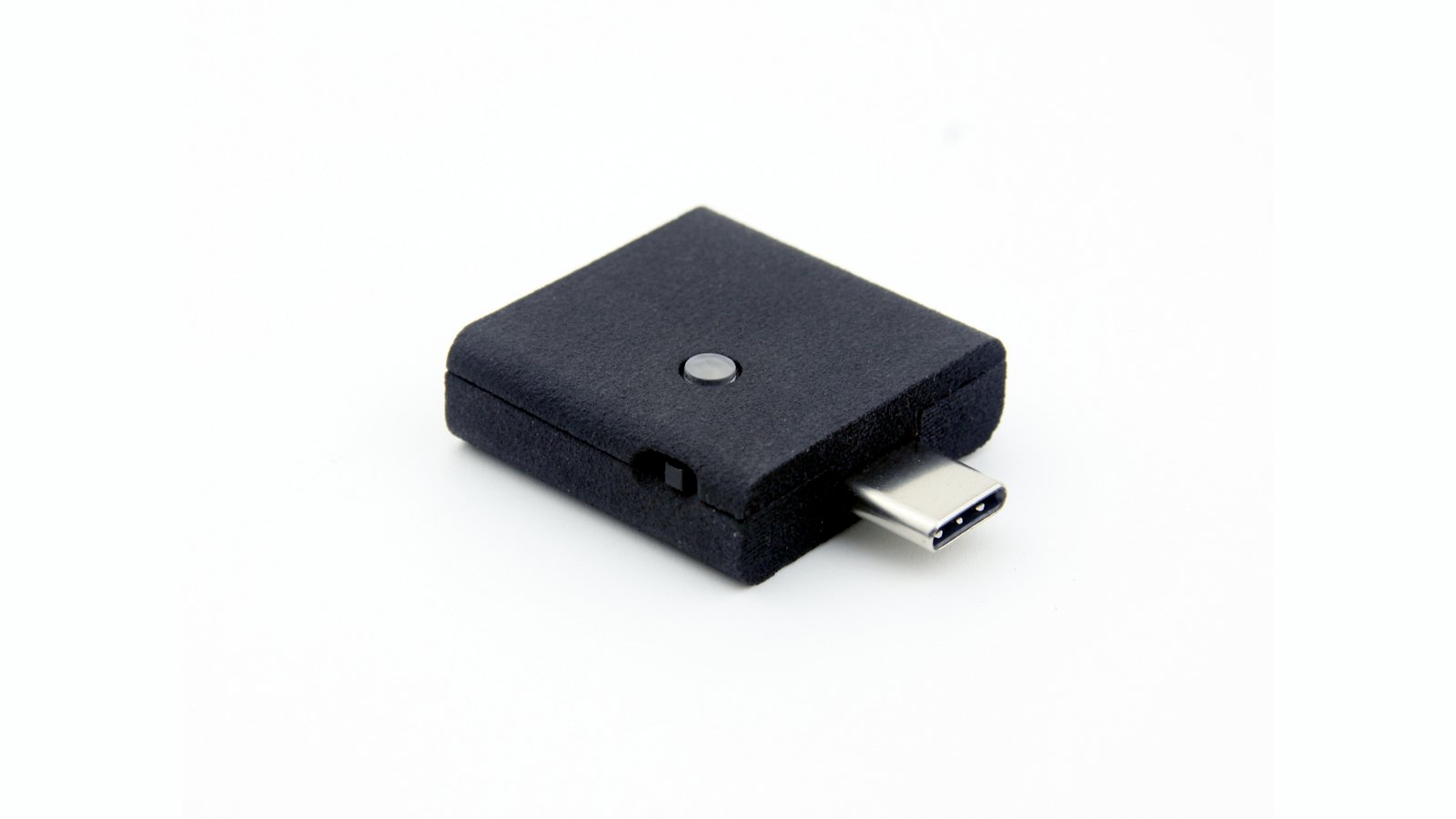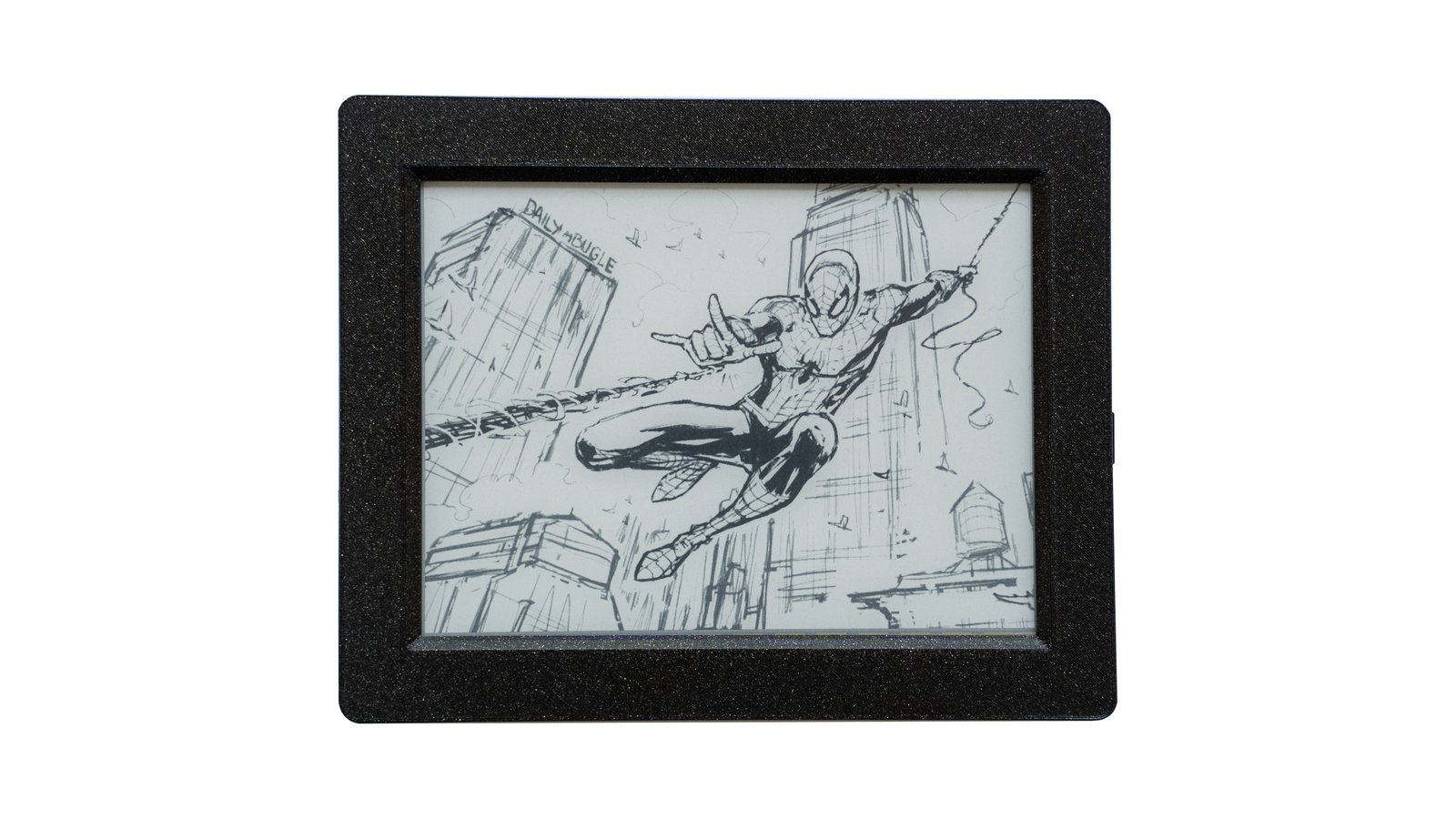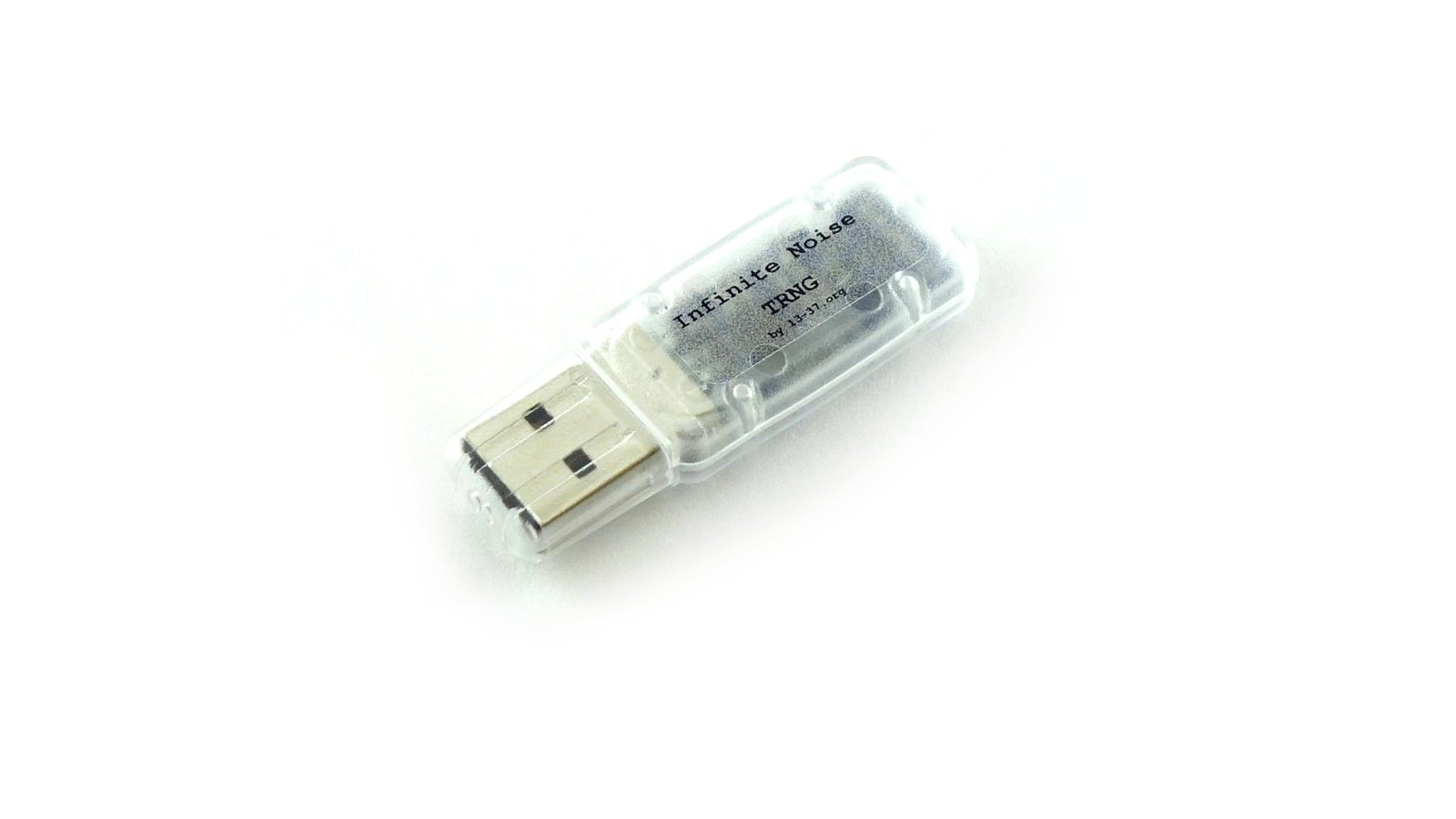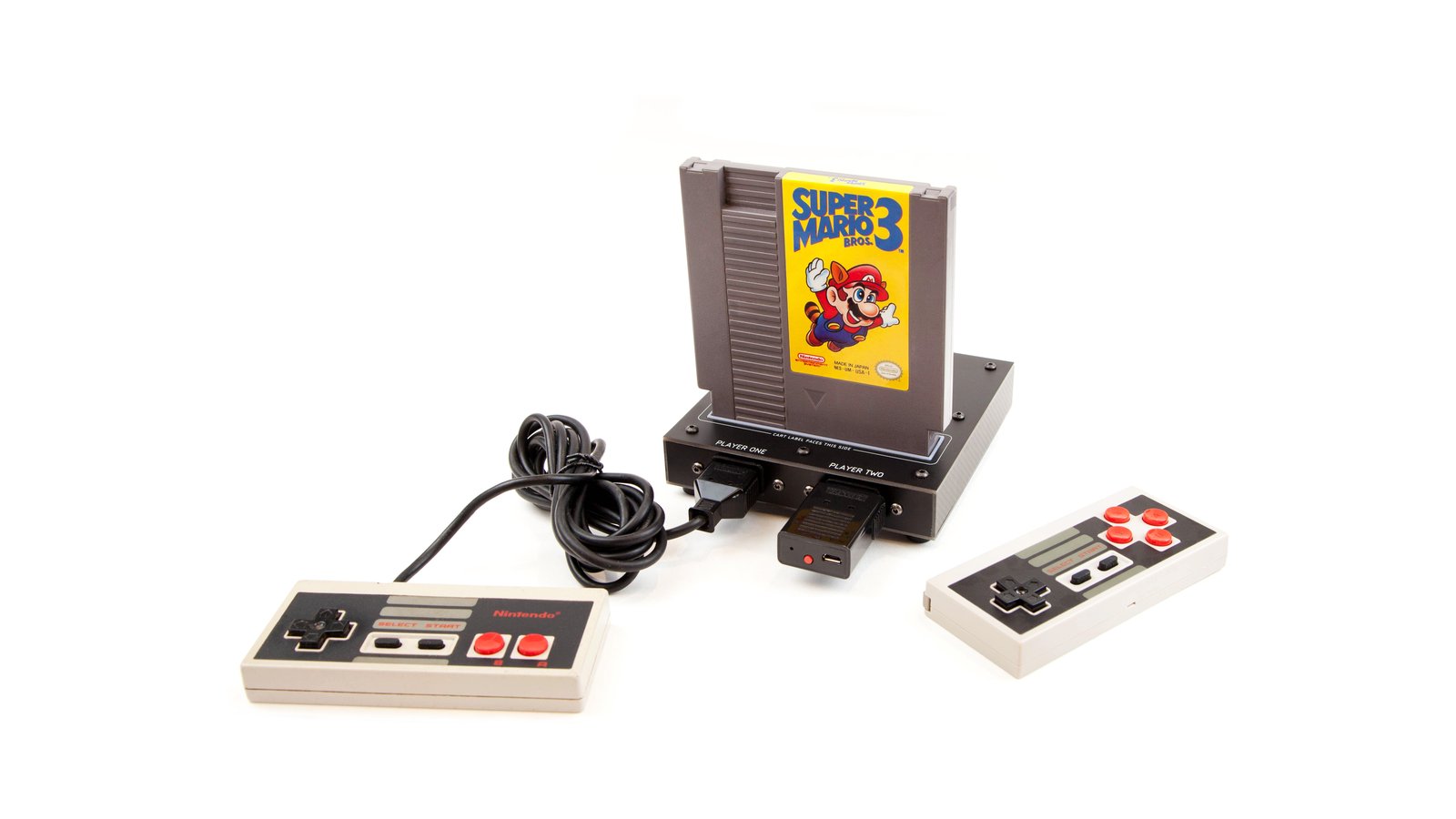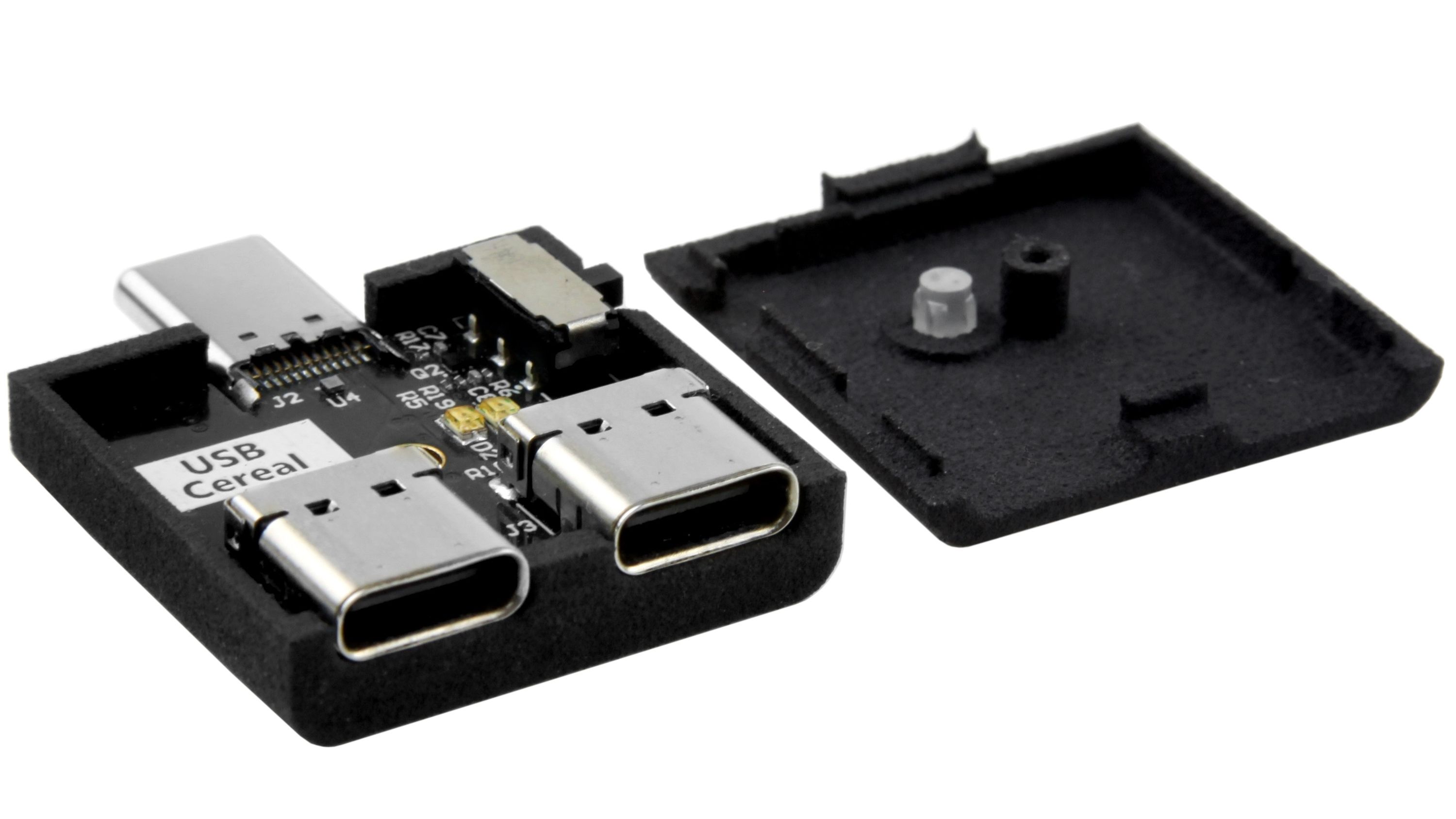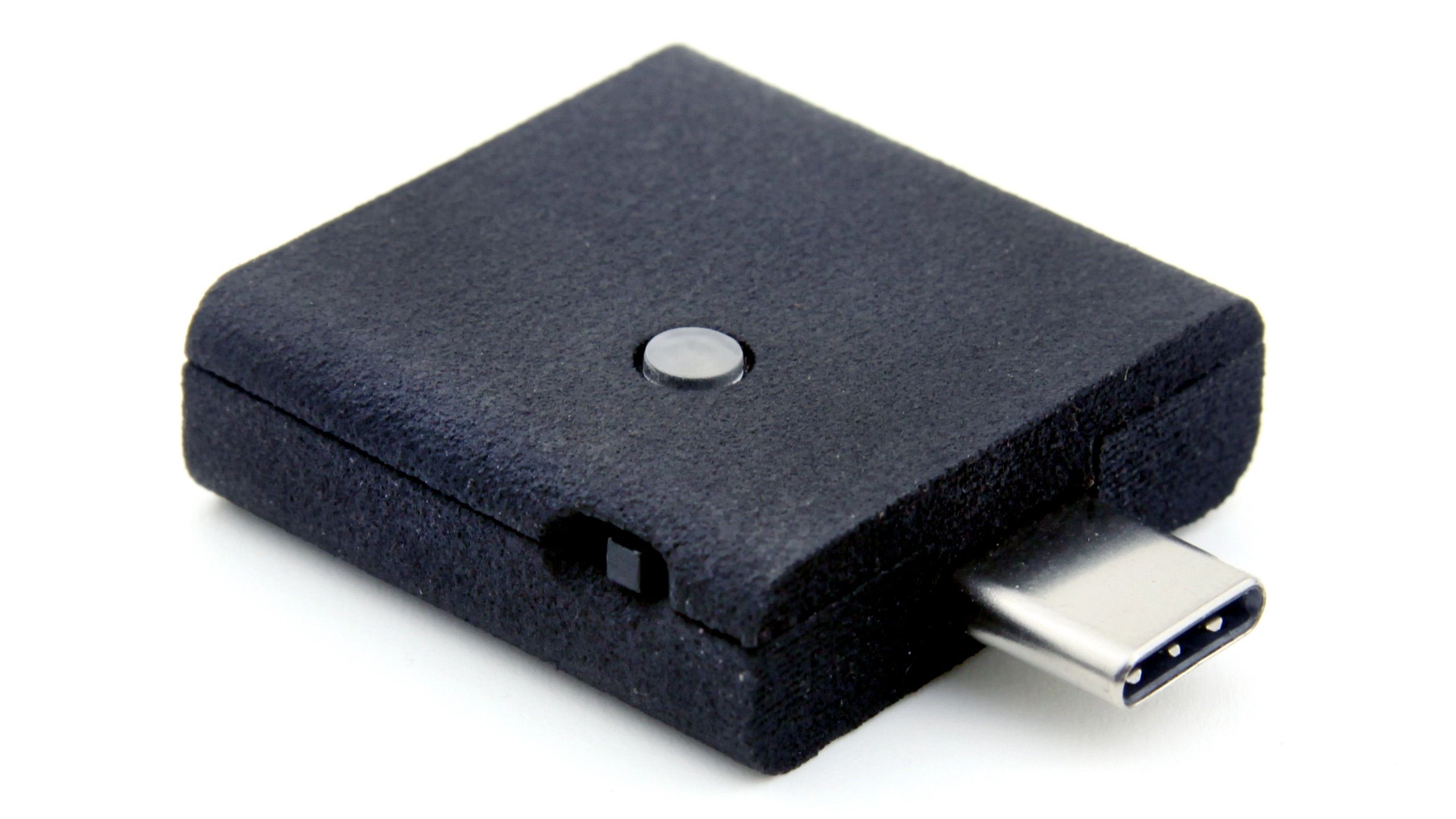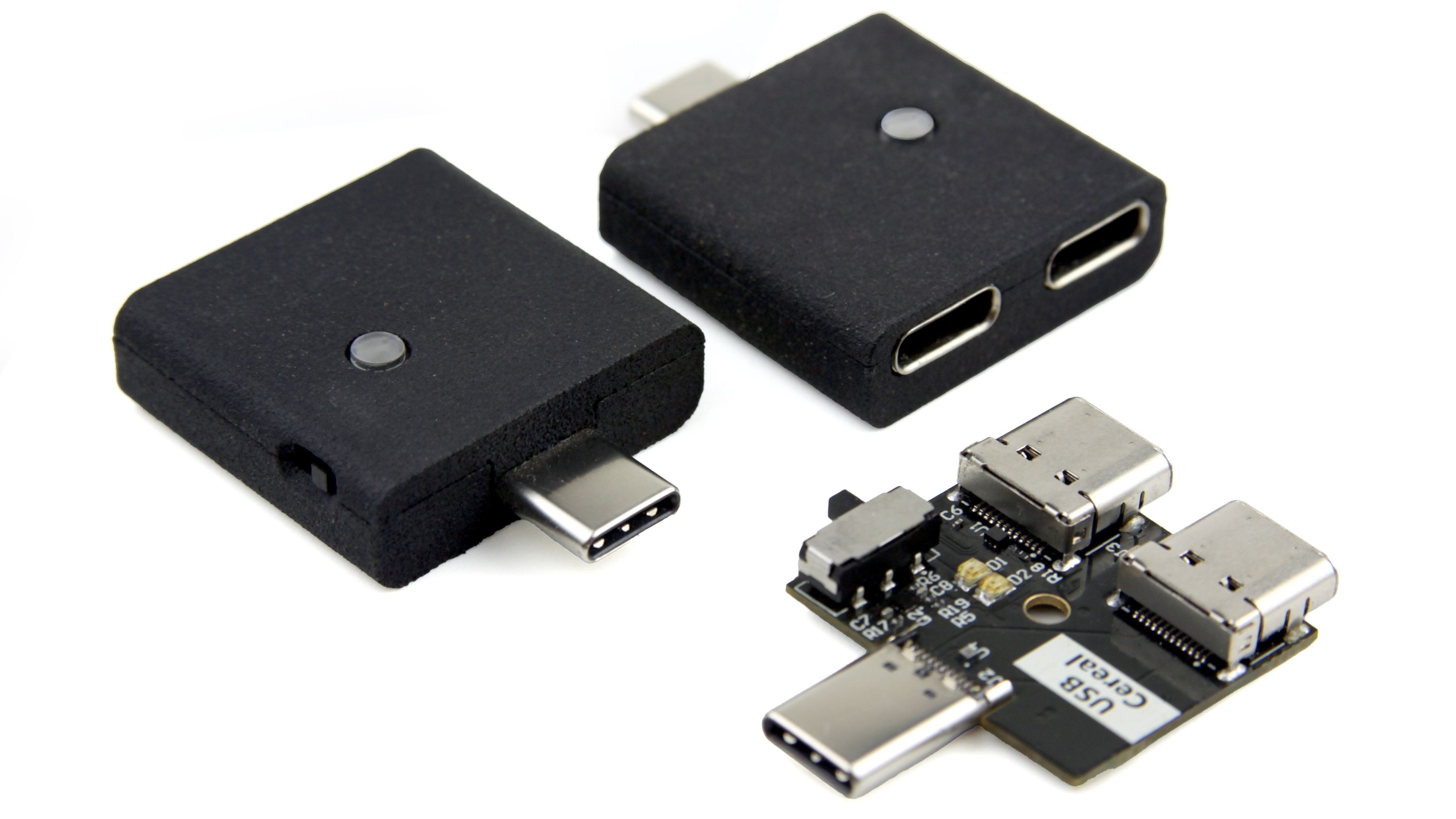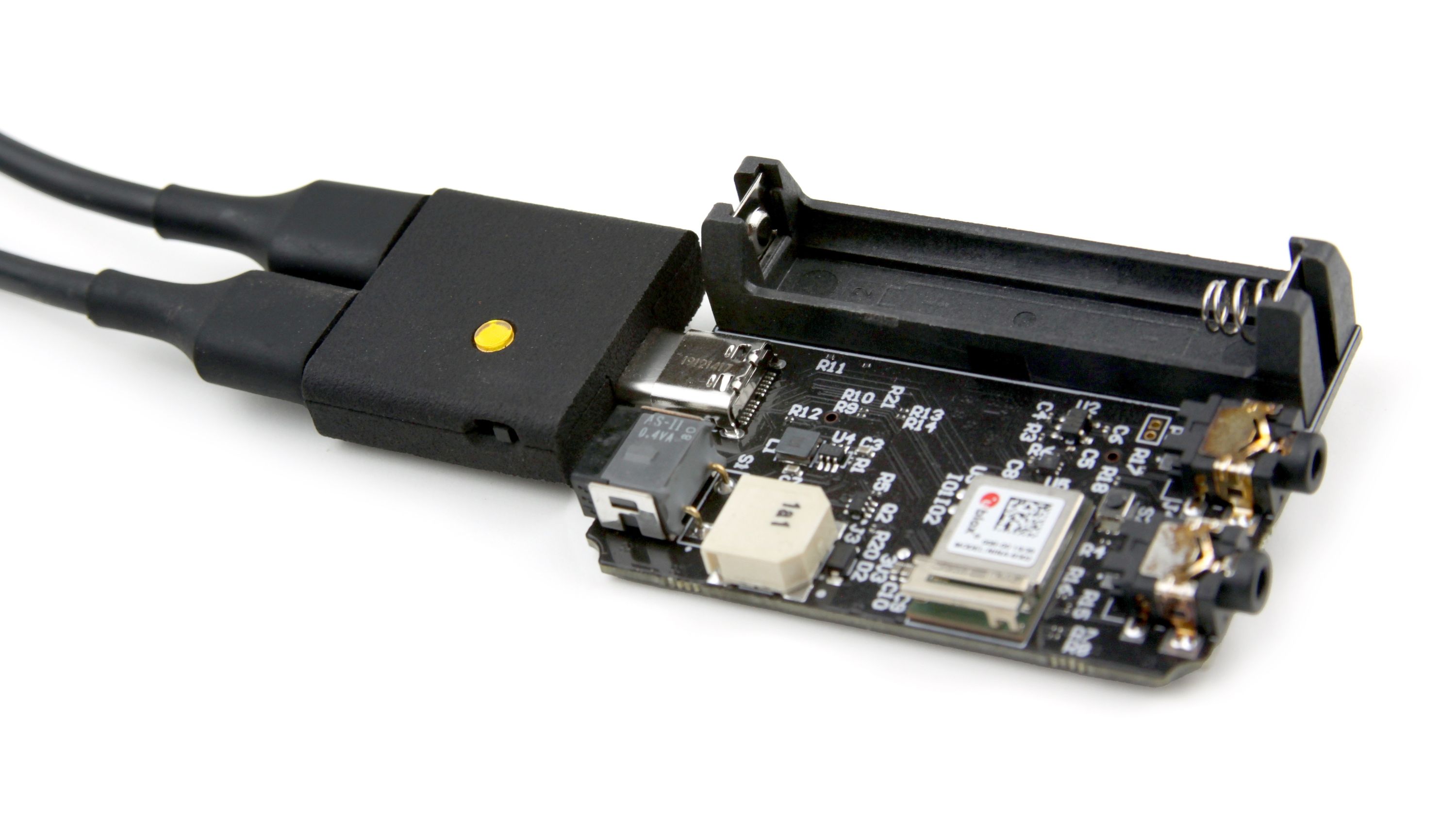Crowdfunding Page History
This page is an archive of the original crowdfunding campaign for this project. It may not be up-to-date with the latest updates and product availability.
Return to the current project page.
USB-Cereal is a powerful, fully open source development tool that simplifies testing, development, debugging, and manufacturing of devices that support USB Type-C. Using USB Type-C’s extended capabilities, this unique hardware accessory saves time and effort by enabling the capture of debug and factory logs, providing a simple command-line interface, and facilitating firmware updates.
Put simply, what makes USB-Cereal so useful is that it enables simple UART serial communication with the host device through the sideband pins that are typically dedicated to device-specific applications.
The original USB-Cereal was an open source project that originated at Google. This USB-Cereal fork by 0xDA LLC makes those same robust capabilities available to developers. There has been a complete redesign, with quality and BOM-cost optimization, and 0xDA LLC has ensured that all high-speed traces are routed optimally.
USB-Cereal’s goal is to cut development, debugging, and testing time while saving on component costs for hardware, firmware, software engineers, and makers, hackers, testers, and who choose to use the increasingly popular and ubiquitous USB Type-C standard. USB-Cereal and the elegant and simple methodology it uses will become more popular and useful over time.
USB-Cereal Makes Hardware Development Easier
USB-Cereal can perform a number of useful development tasks that make working with USB Type-C capable devices much more manageable. It can perform general closed-case debugging, testing, and data capture on devices with USB Type-C and doesn’t require a USB stack to be brought up. USB-Cereal can do low-level debugging with USB drivers not yet fully loaded. This is handy when debugging low level features, when USB logs are not accessible. It can be handy in performing closed-case firmware update procedures.
Features & Specifications
- Development logs can be captured with the device under test (DUT) closed up, without any jumper wires hanging around, and no extra connectors.
- No USB drivers on the DUT need to be brought up or booted to get communication running back and forth, so the lowest level log capture is possible with minimal effort.
- Another USB Type-C accessory supported by the DUT can be connected via the pass-through port, which makes it easier to pinpoint issues that occur only when that accessory is attached.
- No extra DUT costs are incurred as no extra components or mechanical considerations are needed.
- No extra components on the DUT board means maximum space savings for denser designs.
- Up to 3-Mbps rates are supported for both 1.8 V and 3.3 V signal levels. The selection is completed with the on-board side-facing slide switch.
- No auto-level detection means that not fully UART compliant devices (custom implementation, TX only, etc.) can still be probed. Caution must be used when connecting for the first time, not to overvoltage the DUT!
- To keep the device as simple as possible, no orientation detection is implmented, so the connection to the DUT is orientation specific, which is important to keep in mind when starting to use the device.
- Both TX and RX operations are indicated using on-board green and orange LEDs.
- Major OS distributions support the FT232RNQ which replaced out-of-stock and NRND FT232RQ used in the previous versions of the device.
- Supply problems with FTDI chips have shown to be a real pain, so we have designed a complete fork of the device with CP2102N! If the FT232R* ICs are not available, the subsitute part will be used, as to not to incur any order delays.
- USB-Cereal is extremely portable!
- USB-C plug is mechanically supported by the PCB and by the enclosure as well, so it is robust to accidental wire pulls or bends.
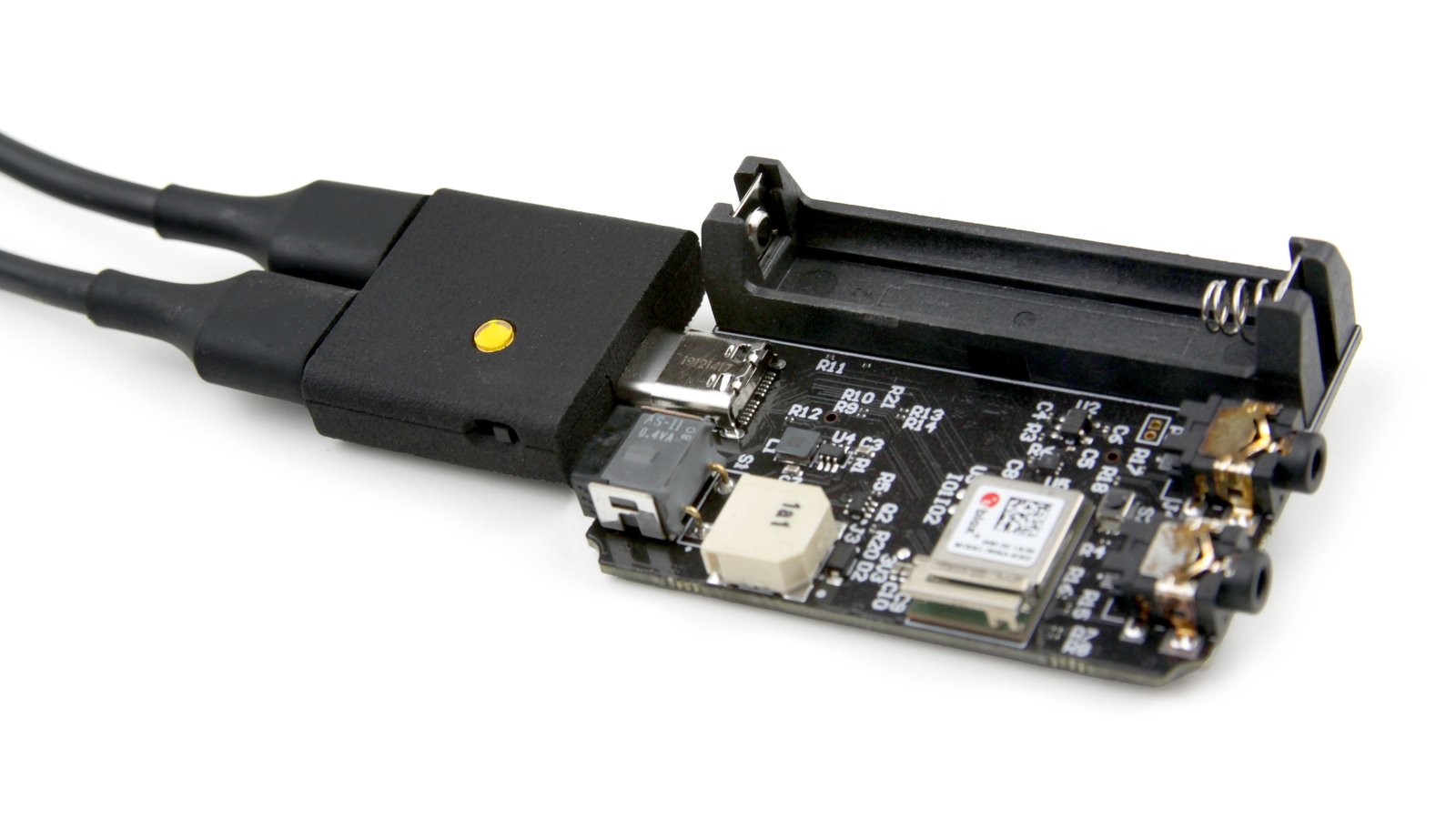
Comparisons
| USB-Cereal | Tag-Connect FTDI Cable | Suzy Q ¹ | μArt | Various FTDI Cables |
| USB Type-C interface | Yes | No | Yes | No | No |
| Simultaneous-USB functionality | Yes | Yes | No | Yes | Yes |
| Closed-case access | Yes | No | Yes | No | No |
| Open Source | Yes | No | Yes | No | Yes |
| Selectable TTL level | Yes (1.8 V or 3.3 V) | No ² | N/A ³ | Autodetect | No |
| Enclosure | Yes | N/A | N/A | Yes | No |
| Price | $49 | $69 | $14 | $49 | Varies |
¹ USB-Cereal is not compatible with Suzy Q
² TC2030-FTDI-TTL-232RG-VIP relies on external reference
³ Requires a secondary USB interface
Block Diagram
Support & Documentation
You can find all of our open source information, including our hardware design files, in our GitHub repo. 0xDA LLC is also commited to provide support as much as possible over the email.
Manufacturing Plan
We have a history building prototype devices exactly as they are shown with PCBWay in China. Three revisions of the hardware have been manufactured, tested, and validated with PCBWay’s help.
The PCB is inspected and post-inspection is assembled at the same factory. Assembled PCB (PCBA) goes through optical inspectoin, depanelization, and functional testing that covers all the electronic components. The complete and tested electronics assembly is then packaged in ESD-sensitive manner and shipped to California, where the PCBA is packaged with the enclosure and the necessary hardware to complete the assembly.
The enclosure is manufactured using MJF-process with post-print dying in China, and all the screws are made of 316 stainless steel and sourced in the US. The final assembly and testing happens in California. Complete manufacturing and testing timeline is approximately 40-50 days.
Fulfillment & Logistics
After our production run is complete, we will box everything up and send it along to Crowd Supply’s fulfillment partner, Mouser Electronics, who will handle distribution to backers worldwide. You can learn more about Crowd Supply’s fulfillment service under Ordering, Paying, and Shipping in their guide.
Risks & Challenges
Regulatory risks - we are working to make sure that the hardware is compliant with all the radiative and conductive emissions requirements. While we don’t forsee any problems as we have employed the best EMI practices in PCB design, some things can always go wrong. Supply chain delay risks - most of the components are available in large stocks, and the main FTDI chip sometimes presents sourcing challenges. We hope we can secure large enough of a lot as the campaign launches, and in order to protect the bakers from unexpected delays we have also prototyped a USB-Cereal with CP2102N chipset from Silicon Labs in case the FTDI part goes out of stock. The drivers and support are just as available, and the alternative device works flawlessly. Quality - we do our best at the PCBA level testing, checking signal shape and voltage levels to specifications. In addition, we do a test on each of the pins of each port to make sure no soldering problems on the connectors and other parts of the PCBA.
